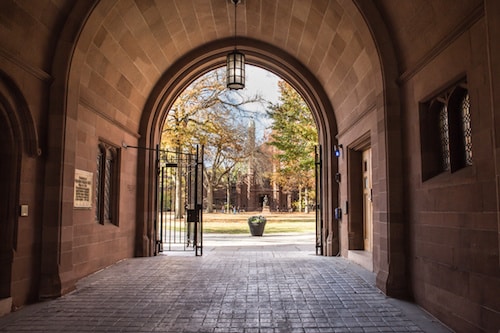 Culture & Ethics
Culture & Ethics
 Evolution
Evolution
 Free Speech
Free Speech
 Intelligent Design
Intelligent Design
Sexual Harassment in Academic Science Offers an Unexpected Lesson About Censorship on Evolution

Tomorrow at close of business we will close nominations for this year’s Censor of the Year (COTY) award — send your nomination today by clicking on the orange Email Us button at the top of this page. The award, to be announced in time for Darwin Day on February 12, is of course intended in a somewhat lighthearted spirit. But serious matters lie behind it.
Young and vulnerable researchers with iconoclastic ideas about Darwinian evolution can face threats of career devastation if they open their mouths imprudently. That’s one reason we are very careful about protecting the identity of students and scholars who are accepted to participate in our Summer Seminars (the application deadline, by the way, is April 7). I recall being overzealous once about cropping out students in a photo of a seminar session to published here at Evolution News. I worried that someone might be recognizable by the back of his or her head. A colleague reminded me, “We don’t worry about backs of heads.”
If you wonder why academia is so perilous for free thinkers on evolution, the answer is complicated. One part of the answer, though, gets short shrift. It has less to do with philosophy or ideology — obvious things — and more to do with power and privilege.
An article at Motherboard, without saying anything about the Darwin debate, reminds me of this. Kaleigh Rogers asks, “Why Are So Many Scientists Harassing Their Students?” It’s not that sexual harassment is necessarily on the rise, but more attention is being paid to it, and of course rightly so:
A prominent scientist has stepped down from his position at a large research university after an investigation found he had been sexually harassing graduate students. Stop me if you’ve heard this one before.
Jason Lieb, a molecular biologist at the University of Chicago, recently resigned after an investigation uncovered inappropriate sexual advances he made to graduate students during a faculty retreat. But Lieb’s case is just the most recent in a growing list of prominent scientists embroiled in <href=”#PO6i4uFM2iqg”>accusations — and admissions — of sexual harassment and discrimination on the job. While sexual harassment in the workplace is a problem in many industries, it seems particularly insidious in the science community in recent years. Is harassment in science increasing or are we just starting to pay attention?
…
In the past few months, there have been four separate cases of high-profile scientists accused of harassment, a first-person account of harassment published in the science journal Nature, and multiple cries for greater awareness and reform. There have also been a handful of alarming studies and surveys published in the last few months and years, outlining the extent of the problem.
What’s going on? Ironically, it’s an evolutionary biologist who seems to hit the nail on the head:
“There is an entire academic culture organized around professional privilege and imbalances of power and multiple harassers and assaulters are navigating these landscapes targeting vulnerable trainees,” Katie Hinde, an evolutionary biologist at Arizona State University, wrote in a blog post last month. Hinde’s research usually focuses on lactation biology, but she’s done some work on sexual harassment in the sciences — including that PLOS survey [here] — as well.
“In the midst of whispers, outright disclosures, and even confirmatory institutional investigations, some colleagues will continue to say ‘well, no one can know what really happened’ or ‘well, he said/she said.’ […] Such responses reinforce power structures, protect predators, and perpetuate a culture of quiet,” she wrote.
Read the rest. It’s an eye-opener.
Of course this set of circumstances is not unique to science — it may help to account for parallel problems in the clergy, for example. But there is something about entrenched rank, pecking orders, and privilege as you find them in academic life that leads to some very unhealthy results. One side of the coin is sexual, but only one. The “culture of quiet” extends to protecting ideas, the ideas that fueled the careers of the scientists at the top.
This is a reality we deal with constantly at the Center for Science & Culture — that enforcers wish to hurt dissenters, who, unless they’re very lucky and somehow protected, are well advised to self-censor at least until they’ve made it to the top themselves. To call the phenomenon sadistic would not, in certain cases, be too far off the mark.
Even having reached a seemingly untouchable level of acclaim, many remain quiet. Several years ago I happened to meet a very distinguished scholar in a field relevant to evolution — not biology but still relevant — a man well on in years and heaped up with professional praise. I’ll say no more by way of identifying him. It emerged from the conversation that he was a Darwin doubter and I asked him to give me a statement to that effect that we could publish here. He refused. Even he, a man nobody was going to hurt, was afraid to be candid. It’s that entrenched.
An irony of our Censor of the Year award is that some egregious censors cannot be publicly identified — precisely because we protect the innocent and their identities. It occurs to me that as a nominee, perhaps, the culture of academic science itself would not to be inappropriate. Just a thought.
Image credit: © littleny / Dollar Photo Club.
